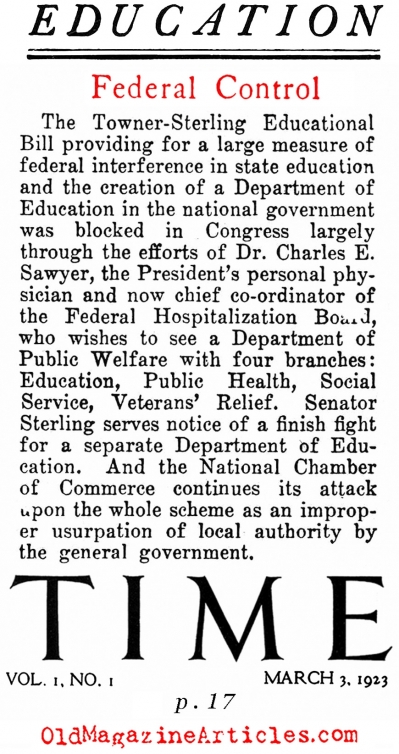Judging by the attached article (on the right) that lists many of the arguments as to whether the states should accept education funding from the Federal Government, one is apt to suppose that our great-grandparents were clairvoyant.
The Smith-Towner Bill is the subject at hand in this column - a defeated piece of legislation that sought to create a federal department of education that was, among other matters, intended to defeat illiteracy (primarily among immigrants). Many of the arguments against the bill are still with us today; matters concerning religion and the power struggle between church and state. One Catholic organization recognized that a
"'Secretary of Education and his subordinates will always have in view the possibility of using the educational system in furtherance of their own partisan interests. The public school system will become a vast political machine."
Backing the bill was the National Education Association - an interest group that has throughout the decades attempted to make the schools better, yet quite inadvertently, they have simply inspired large numbers of parents to withdraw their children from the schools entirely. Perhaps the most prophetic opinions came from a journalist at THE NEW WORLD who recognized that
"The Government does not attract the best minds, and a reign of low mediocrity would result."
(American public school students would be lucky if they were guaranteed a level of "low mediocrity" from their unionized teachers rather than what too many of them are getting today)

